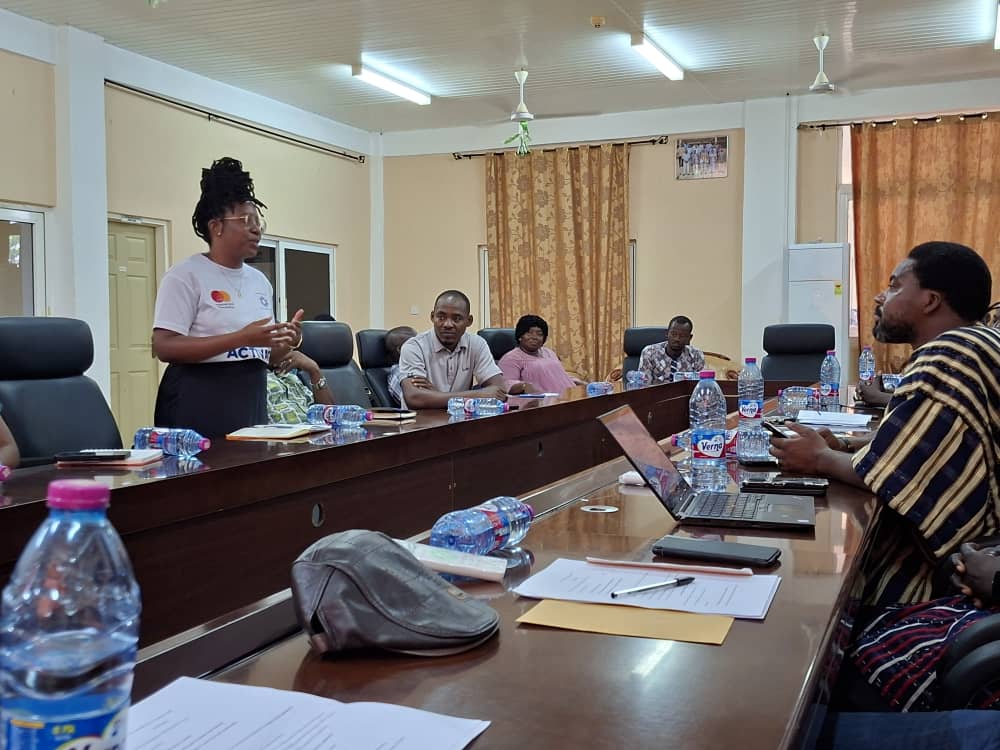The Bolgatanga Technical University (BTU) on Monday held a high-level stakeholder engagement to review progress on two transformative youth development initiatives aimed at strengthening technical and vocational education while improving economic opportunities for young people in northern Ghana.
The two projects; Design Technology Institute (DTI)-Precision Quality (PQ) Curriculum Integration Project, and the World University Service of Canada’s (WUSC) Accelerating Change Through Innovation in Agricultural Technical and Vocational Education and Training (ACTIVATE)-Agriculture Technical and Vocational Education and Training (ATVET), are funded by the Mastercard Foundation and implemented in collaboration with the WUSC and the DTI.
As a core implementing institution, BTU plays a central role in aligning the projects with its academic structures, training delivery, and broader mandate to drive industry-centred and transformative education.

The PQ Curriculum Integration Project sought to embed Precision Quality standards into BTU’s instructional systems, ensuring that graduates acquire industry-relevant competencies needed to meet the demands of modern workplaces.
Complementing this, the ACTIVATE–ATVET project focuses on enhancing agriculture-related technical and vocational training to equip the youth with practical skills for improved employability and sustainable livelihoods.
Together, these initiatives formed part of a broader mission to deliver high-quality, market-ready training that empowers young people to contribute meaningfully to national development.
Professor Daniel Oppong-Sekyere, Dean of the School of Agriculture at BTU, who is also the Chairman for Competency-Based Training (CBT) programmes, stated that the DTI- PQ project, which started in the 2024-2025 Academic Year and expected to end in 2026-2027 Academic Year was contributing positively to ensuring quality teaching support, retooling BTU laboratories, sponsoring internship of students who receive PQ training and sponsorship for annual job fairs, among others.
On the part of the ACTIVATE–ATVET project, Professor Oppong-Sekyere explained that the five-year project, which kick-started in 2024 and would end in 2028, was equally contributing to equipping the youth with practical skills for improved employability and sustainable livelihoods.
Professor Peter Osei Boamah, the Pro-Vice Chancellor of BTU, expressed deep appreciation to WUSC, DTI, and the Mastercard Foundation for their continuous support and reaffirmed the university’s commitment to ensuring the successful execution of both projects.
He emphasised that the implementation of the two projects aligned closely with the university’s mission to deliver quality education, industry-driven training, and transformative learning experiences.
He further indicated that BTU would continue to uphold high standards, maintain effective communication with partners, and leverage the synergies between the PQ and ACTIVATE–ATVET projects to maximise their overall impact.
In their remarks, officials from the Mastercard Foundation, notably Ms. Joan Buo and Edwin Fayorsey, commended BTU, WUSC, and DTI for demonstrating a strong commitment to effective implementation, noting that the progress recorded so far reflected the strength of the partnership.
They emphasised that the Foundation remained dedicated to supporting interventions that create lasting opportunities for young people and enable them, especially young women, to become agents of transformation within their communities.

